- Home
- Lynne Connolly
War Chest: Even Gods Fall in Love, Book 5 Page 4
War Chest: Even Gods Fall in Love, Book 5 Read online
Page 4
“You hardly knew her.”
“That’s true enough,” he admitted. “However, she was sweet, pretty and in trouble. What else could I do? Then she died, and I was left—I would not have left the babies to the tender mercies of an orphanage. Even Coram’s provides basic upbringing and little else.”
After putting his coffee on the side table, he swept a hand wide, indicating the house. “Why should I do that when I have all these rooms to fill? God knows I could easily forget I had children in the house.”
“What of the other ailment?”
“I’ll recover.” He didn’t want to talk about “the other ailment” and how easily he’d been deceived. Believing himself in the throes of a passionate affair, he hadn’t seen the net enclosing him until too late.
The affair he’d conducted with Virginie had been public, passionate and scandalous, but he couldn’t have stopped it even if he’d thought about it more rationally. Circumstances separated them, and Virginie continued with her life, while Marcus was still trapped. The enchantment sank its claws deep into him and it wouldn’t let go.
“Mercury cannot find a cure,” Henstall said. “He says the cause is more than the initial arrow Eros sent into you. In fact, the effects of that are entirely gone. Eros cannot remove an enchantment that is not there.”
“I know that,” he growled. He’d reconciled with Eros, otherwise known as Edmund, Duke of Kentmere, because he had little choice. Better to sustain an uneasy relationship with a fellow Olympian than allow old grudges to set them at each other’s throats. The Titans, the enemies of them all, would love that, and do their best to break the alliance they were making. “I can cope. Like any addiction, it will pass.”
“Mercury says if you find another woman, you may recover.”
Marcus said nothing, but drank his second coffee at a single gulp. Then he turned around and headed for the sideboard—and the brandy decanter. To hell with it. He was going to be up all night anyway. He might as well put himself into a pleasant stupor.
He never slept the night through, rarely managed more than two hours at a stretch. Even gods needed sleep, at least this one did. Although he told himself the lack of sleep was killing him, the reason went much deeper, right down to something he couldn’t control, which infuriated him. He would defeat this, as he conquered all the challenges in his life.
“Amidei may go to hell.” Mercury was currently residing in the elegant form of Amidei, Comte d’Argento.
“Actually, he’s coming here on his way back to London. He sent word this morning and asked me to tell you.”
Marcus grunted. “I’d hardly call Castle Lyndhurst a direct stop on the way from Lancaster to London.”
Henstall shrugged. “He wants to speak to you. Don’t forget he’s the physician to immortals.”
Marcus was hardly likely to forget it. D’Argento made himself busy with more than messages. Communication would be a better description for the task he’d taken on himself.
Moodily, Marcus sipped his brandy. “So the busybody is coming here? Does he plan to stay long?”
“It’s not my place to say.”
Marcus snorted at Henstall’s frankly disingenuous response. The man reared him after his parents’ death. As a faun, Henstall was a minor immortal, but he’d made himself more important by rearing one of the gods—the god of war.
Marcus owed Henstall a great debt. Clever man, Henstall. Just as well one of them was. Marcus had never questioned his world or his place in it before recent disasters forced a reassessment, but he must conquer this worm burrowing deep inside him or die in the attempt.
Maybe dying was easier.
Henstall bade him goodnight and left, but both men knew Marcus would not be taking to his bed for a while yet. Nevertheless Marcus made his way to his bedchamber and allowed his valet to help him undress and get ready, as if he was climbing into the big bed and sleeping the slumbers of the just. Or the unjust, he was no longer sure. Once Vallery—a French immortal, and more importantly, a superb valet—left the room, Marcus sprang out of bed and strode around his room for a while. Anything to tire himself out long enough to sleep.
As usual, sleep did not come.
* * * * *
Ruth spent the next few days accustoming herself to her new position and the nursery routine. The duke took himself off to York the day after she dined with him, and when he returned two days later, he’d not sent for her. She heard him sometimes, but he never came up to see the babies, and she rarely left the nursery wing.
She was not disappointed. Of course she was not. His absence freed her from his dangerous presence, and his questions. What madness had made her promise to play that game?
Instead of worrying about things she could not have, she made herself busy acquainting herself with her nephews,
She had vaguely expected two helpless babies, swaddled and sleeping most of the time, but when she enquired of the nursery maid, Andrea, the other woman dismissed her concerns with a snort. “They have never been swaddled. The duke did not hold with the practice, and I agree with him.”
“But their limbs might not grow straight,” Ruth protested, concerned for the boys.
“Pooh, that is nonsense. Swaddling is unnatural for children as lively as these. They have never been still, and I hold that exercising their limbs is far more likely to have a beneficial result. They need to build their strength, not be unnaturally constrained.”
Watching the two babies, in the process of lying on their backs playing with their toes, Ruth thought she might be right.
Of course, it meant that the boys were not the placid babies she was used to, but lively, with characters already forming. Peter was forward and bright, always the first into mischief, but his brother did not linger behind. Andrew would ever push his brother to new feats, she was sure of it.
Every day she spent with them drove the boys deeper into her heart, and made Ruth sure she had made the right decision to come here. Now she had established herself, she was not sure that she might not be welcomed as the child’s aunt, but how could she have known that when she arrived? She could have had the door slammed in her face, and rather than that, she gave herself a new name. And she had the boys.
On Saturday, a week after her arrival, Ruth blinked awake to broad daylight. Fumbling for her watch, which she’d put on the nightstand, she checked the time and rubbed her eyes. She couldn’t remember the last time she’d slept until seven without interruption. Living in a comfortable, though not spacious, manor house had meant she heard all the movements when the servants rose at five, then the gardeners—arriving to tend to her mother’s pride and joy, her garden—then the maid coming into her room with hot water and a fresh pot. She always slept lightly, and the slightest noise could wake her. That was one reason why her mother had allowed her the little room of her own.
Swinging her feet out of bed, she found the floor pleasantly warm from the sunlight that streamed through the window. The sense of her surroundings and her current position swept in on her. Hastily she washed—in cold water, because she was not a guest or an honoured family member, but a mere governess—and dressed in one of her other gowns. Making her way to the nursery, she heard a sound. A child lightly grizzling, not yet in full flow. She opened the door.
Andrea turned and breathed a sigh of relief. “Could you pick up Peter, please? He’s waiting for his feed, but Andrew is not taking his breakfast well.”
At six months old, surely they should be weaned, or further along the way? Babies needed a firm hand, Ruth’s mother always said, not leniency.
The rocking cradles were dangerous for children like this. She would change the cradles to something more suitable for active children. The cradles swung from a hook on the support, and the babies were not still, as many could be. One of the children would fall out. They could swing that cradle too far. Peter, currently sittin
g in his crib, dragged himself to his feet. The cradle rocked madly.
Horrified at the potential accident, she swept forward and lifted the child into her arms, holding him tightly. He could have come to serious injury. Swallowing the lump in her throat, she loosened her hold and on the solid, warm body in her arms. He gazed up at her with a preternaturally mature expression, but that was probably a trick of the light, for the day was bright and this room shared the same aspect that hers did. She smiled and jiggled him in the way she knew he liked. He chuckled back, but his grizzling returned right on the heels of her relief. “This cannot be allowed to happen again,” she said firmly. Andrea, who had moved to sweep Andrew from his cradle, nodded, white-faced.
Ruth took a seat on the spare chair at the table and reached for the bottle. Peter knew what to do with it better than she did and guzzled the contents. “Surely they’re too old for the bottle?”
“You tell his grace that. These babies are six months old. They were three months old when their mother died, poor woman, and then they were in London for a month before his grace brought them here. He says he doesn’t want anything to do with them.”
“Where is the nearest town?”
Andrea glanced up. “York, ma’am.”
“How far away?” She had not marked the distance when she’d come on the coach.
“About ten miles.”
“Then I will go to York and find what we require.”
Andrea grinned. “There might be no need. Don’t you have permission to go into the attics?” Ruth nodded. “This is a big house and an old one. There must be some things up there.”
A smile spread over Ruth’s face. “So there will. I’ll make a list.” One thing Andrea said dismayed her. “You said you’d eaten breakfast?”
“I have, ma’am, but there’s another sitting in half an hour for the chambermaids. You can go down then.”
Just as well, because her stomach was rumbling as if she had not eaten well last night.
After she helped Andrea feed and settle the babies, Ruth went downstairs. Before she arrived here, belowstairs had been an unfamiliar world. The backstairs were part of the old fabric of this house, Tudor or Stuart, dark wood carefully polished to a sheen. After the first two flights, she went through a door and down another flight, this time of stone steps in a spiral, from the worn treads even older than the ones in the main body of the house.
The house contained a warren of passages and rooms, some service areas, and some for storage. They were stone flagged. The walls exuded cold and damp. That was, until she approached the kitchen.
She slipped into a huge room, with a fire roaring at one end, the spits already occupied by poultry and joints of meat. The woman in the large cap and sleeve protectors glanced around as she came in. “Breakfast is in the upper servants’ room.”
“Thank you.” Ruth didn’t think the woman was listening. She was instructing her two assistants before Ruth turned around to go to the chamber set aside for the upper servants’ use. This house must once have employed many more servants. Great houses like this could have up to fifty people to keep it in splendour, but at present, the provision of separate rooms for servants seemed superfluous.
Five people sat at table. Two footmen and three housemaids. Ruth took a plate, helped herself to the generous amount of viands on the sideboard and smiled her good morning. “It’s a splendid day, is it not?”
“‘Splendid’.” One of the maids giggled. “You’re a governess all right. Sit where there’s a place. Mrs. Brindlehurst ate earlier.”
Ruth sat next to the maid and set to eating. “Didn’t his grace say you were a relative of his?” the girl asked. “What are you doing down here with us?”
Ruth shrugged, wishing the duke had not invented the tale “I must eat somewhere. I’m a governess by profession.”
The maids stared at her curiously, and Ruth’s heart sank. Governesses, companions and other genteel people who were employed to serve a family fell between the two stools. They weren’t good enough for the family, and they did not fit in belowstairs, because who knew what they would convey to their masters? Nobody trusted them. They could lead very lonely lives.
Ruth busied herself with her food and the big dish of tea someone set before her. “I’m just here to care for the babies and set up the nursery.”
“How long are you here for?” the maid next to her asked as she shoved a stray lock of hair back under her linen cap.
“As long as his grace needs me.”
“Have you been to London?” the footman asked her. He’d taken off his heavy coat and sat at table in his waistcoat and shirtsleeves.
Ruth shook her head. “No further than York.”
“London drives people mad,” the other footman said sagely. “It’s not a safe place. You wouldn’t get me going there.”
“What about if he orders you, Will Kennaway?” Daisy, the maid sitting next to Ruth asked.
Will Kennaway blushed. “That’s different.”
Ruth cut into a thick slice of bacon. “I’ve never been to London. I come from the north.” She stopped herself saying “Cumbria” in the nick of time. They might know the babies’ mother came from there.
“Scotland?”
“Nearly.” She sipped her tea. Just as she liked it, strong and hot.
She didn’t linger long over her breakfast, but the chatter going on around her disturbed her a little. What could she say?
She turned to her food, and said nothing, then excused herself to go upstairs. She’d seen eight servants down here, all but the housekeeper and the butler. It seemed a woefully small contingent for such a large house, ten servants, plus the nursery staff, and the duke’s personal body servant. The duke seemed content with the arrangements, so who was she to criticise?
On her way upstairs, she caught sight of the duke. He was striding down the hallway by his apartments, which were two floors below hers, almost directly, except, of course, much grander. What would the house look like opened to visitors?
It was likely she would never know. She turned hastily to go in the other direction.
“Miss Carter!”
She had to stop when she heard him call, so she waited, head down, hands clasped before her and bobbed a curtsey.
“Don’t do that,” he said irritably. “Look at me.”
She raised her gaze to his face. “Good morning, sir.”
“Good morning, Ruth.” His one-sided smile warmed the expression in his eyes, which bore marks the colour of bruises under them. “What are your plans for the day?”
“Is that one of the questions you said you wanted to ask me?”
“No, saucy wench, it is not.” His voice lightened. “We will speak of that tonight. I’m still considering what I want to ask you. You are an enigma, Ruth. A pixie.”
His epithet startled her into a laugh. “Most people call me a beanpole.” Why did he provoke her into such answers? She had determined to say yes sir and no sir, but all her good intentions flew out the window when she spoke to him.
“Not to me. You’re as mischievous as a pixie or an elf, that’s for sure. Or maybe one of the sprites that inhabit the woods around Rome.”
“Are there such things?”
“I am assured there are. Should you like to see them one day?” He gazed at her as if he really wanted to hear her answer.
“Indeed, sir, that would be beyond my wishes. I don’t think of it because I doubt I’ll have the opportunity.” Taking her courage in both hands, she drew a breath. “Your grace, I would like to go into the attics to find a few things for the babies.”
He waved a hand airily. “Of course you may.”
He studied her, his gaze roaming over her. The resultant heat must be a result of the weather and her gown, not because he was paying attention to her. “Why do you wear such stifling clothe
s in the middle of summer?”
The middle of summer had come two months ago, in June, but really this August was much hotter than it had any right to be. “Because they are what I possess, sir.”
“If you are venturing into the attics, then I have something more suitable for you, if you’re handy with a needle. There are any number of clothes up there. They might be old-fashioned, but I give you permission to do with them as you will.”
“Sir, I couldn’t possibly—”
He broke into her protests. “Yes you could. You may use what you wish. I believe fashions were a little different a few decades ago, but I feel sure you could spend time remodelling them to your liking.”
“Were they your mother’s?”
He flinched as if she’d struck him. “Do not use those. All the trunks are labelled, I believe, with the names of the owners. I do not wish you to use the ones my mother wore. However, my two aunts lived here until their deaths, around twenty years ago. Use those.”
She perfectly understood why he would not want someone using his mother’s clothes, although that gave her another clue. She had not asked the servants about the family history. As a distant relative she’d have known it, so it would seem suspicious if she’d asked. But his words meant he remembered his mother, and probably still mourned her.
The duke was around thirty, which meant when his aunts were alive the fashion was for larger hoops and wider skirts. That would give her more fabric than she needed. She would also undertake to raise the hems to a more practical level. Grand ladies tended to prefer skirts that swept the ground. That would make the skirts a reasonable ankle length for her, or even higher. She could fashion a ruffle with the spare fabric to make the garment decent.
Her mind running on, she found the thought of new clothes, however handed-down, exciting. A thrill went through her, such as she had not experienced since that disastrous season in York. Her mother had chosen most of her clothes, but since she was used to selecting items that suited shorter, prettier girls, they mostly turned out horribly wrong for Ruth’s lanky form.

 Boundless (The Shaws)
Boundless (The Shaws) Sinless (The Shaws)
Sinless (The Shaws) The Girl with the Pearl Pin
The Girl with the Pearl Pin Hosts to Ghosts Box Set
Hosts to Ghosts Box Set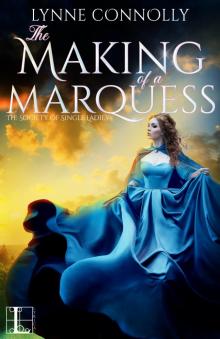 The Making of a Marquess
The Making of a Marquess Boundless
Boundless Beauty of Sunset
Beauty of Sunset Virginia And The Wolf
Virginia And The Wolf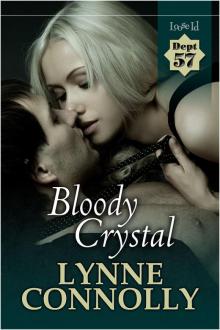 Department 57: Bloody Crystal
Department 57: Bloody Crystal Temptation Has Green Eyes
Temptation Has Green Eyes Forged by Love: Even Gods Fall in Love, Book 4
Forged by Love: Even Gods Fall in Love, Book 4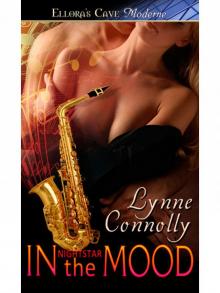 IntheMood
IntheMood Hareton Hall: Richard and Rose, Book 6
Hareton Hall: Richard and Rose, Book 6 ShiftingHeat
ShiftingHeat Rendezvous at Midnight
Rendezvous at Midnight Yorkshire: Richard and Rose, Book 1
Yorkshire: Richard and Rose, Book 1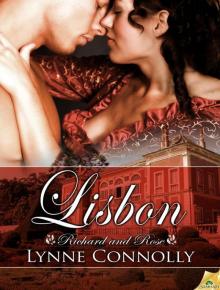 Lisbon: Richard and Rose, Book 8
Lisbon: Richard and Rose, Book 8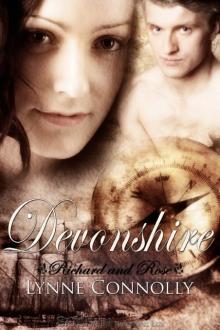 Devonshire: Richard and Rose, Book 2
Devonshire: Richard and Rose, Book 2 Venice
Venice War Chest: Even Gods Fall in Love, Book 5
War Chest: Even Gods Fall in Love, Book 5 Dilemma in Yellow Silk (Emperors of London)
Dilemma in Yellow Silk (Emperors of London) BornontheBayou
BornontheBayou Dauntless (The Shaws)
Dauntless (The Shaws) Brutally Beautiful
Brutally Beautiful Lightning Unbound: Even Gods Fall in Love, Book 1
Lightning Unbound: Even Gods Fall in Love, Book 1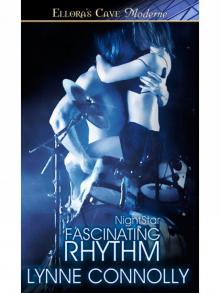 FascinatingRhythm
FascinatingRhythm Fearless
Fearless A Chance to Dream
A Chance to Dream Mad for Love: Even Gods Fall in Love, Book 2
Mad for Love: Even Gods Fall in Love, Book 2 Sinless
Sinless SailtotheMoon
SailtotheMoon Wild Lavender
Wild Lavender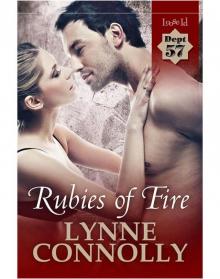 Department 57: Rubies of Fire
Department 57: Rubies of Fire Maiden Lane
Maiden Lane Harley Street
Harley Street Dauntless
Dauntless NicenEasy
NicenEasy It Started at Waterloo
It Started at Waterloo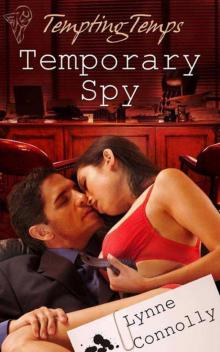 Temporary Spy
Temporary Spy BorntobeWild
BorntobeWild Dilemma in Yellow Silk
Dilemma in Yellow Silk Yorkshire
Yorkshire The Thorndykes 1: Dispossessed
The Thorndykes 1: Dispossessed The Thorndyke Trilogy 2: Dancing at Midnight
The Thorndyke Trilogy 2: Dancing at Midnight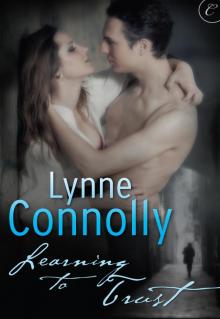 Learning to Trust
Learning to Trust Her Quicksilver Lover: Even Gods Fall in Love, Book 6
Her Quicksilver Lover: Even Gods Fall in Love, Book 6 Loving Lucy
Loving Lucy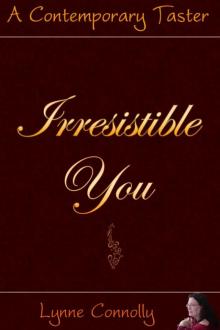 Irresistible You
Irresistible You Arrows of Desire: Even Gods Fall in Love, Book 3
Arrows of Desire: Even Gods Fall in Love, Book 3 Unbroken
Unbroken Devonshire
Devonshire Reckless in Pink
Reckless in Pink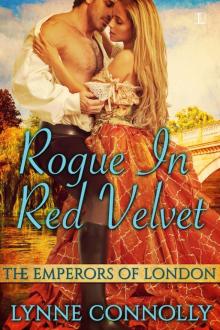 Rogue in Red Velvet
Rogue in Red Velvet